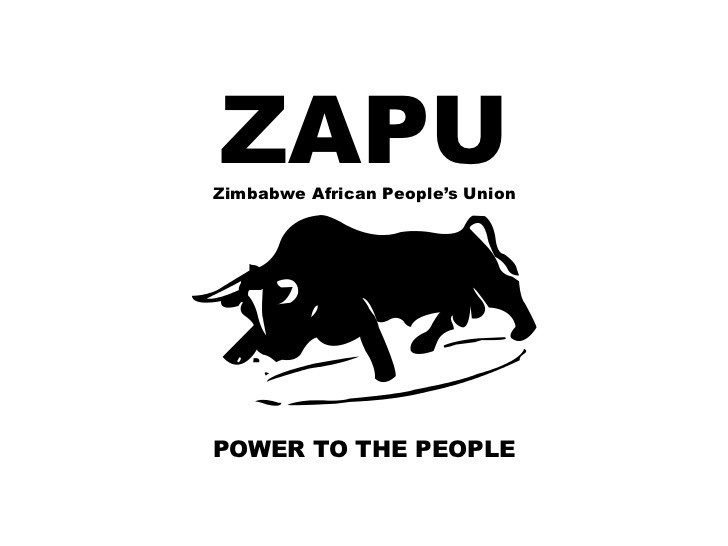
THE recent stern warning by Vice-President Constantino Chiwenga against corrupt business practices and phantom entrepreneurship have brought to the forefront a critical discourse about the future of Zimbabwe's youth and the ethical foundations necessary for sustainable national development.
In his address to the Zimbabwe National Chamber of Commerce annual congress, Chiwenga's emphatic declaration that "money does not fall from heaven" serves as a powerful reminder of the fundamental principles that should guide our nation's next generation of leaders and entrepreneurs.
This timely intervention highlights the urgent need to cultivate a youth culture deeply rooted in integrity, accountability and ethical conduct, moving away from the concerning trend of questionable business practices that have plagued our economic landscape.
The current state of Zimbabwe's moral and economic fabric, as reflected in the troubling decline in our transparency rankings and the proliferation of unethical business practices, demands immediate and decisive action in shaping the values and aspirations of our young people.
The Vice-President's observation that "real businesses are built through hard work, discipline, sacrifice and value creation" resonates deeply with the traditional principles of Ubuntu that have long guided our society.
These indigenous values, which emphasise community responsibility, ethical conduct and genuine value creation, offer a robust framework for developing young leaders who understand that sustainable success comes not from shortcuts or corrupt practices but from dedicated effort and moral integrity.
The liberation struggle, which forms a crucial part of our national identity, provides compelling examples of how unwavering commitment to principles and collective welfare can achieve remarkable outcomes.
These historical lessons must be actively integrated into our approach to youth development, ensuring that the sacrifices made for our independence continue to inspire ethical leadership and moral conduct in business and governance.
- Big send-off for Cont Mhlanga
- Massive ZRP vehicle theft scam exposed
- Zanu PF bigwigs face axe in purge
- Village Rhapsody: Health workers’ grievances need permanent solution
Keep Reading
The pervasive influence of social media and the instant gratification culture it promotes has created additional challenges in nurturing ethical youth leadership.
Young people today are bombarded with images and stories of overnight success, often achieved through questionable means, creating pressure to emulate these harmful patterns.
This situation is further exacerbated by the visibility of individuals with a conspicuous display of wealth, which can mislead young people into believing that corrupt practices are acceptable paths to success.
As Chiwenga rightfully emphasised, "This culture of phantom entrepreneurship, where money appears without any known source, is not only economically corrosive but ethically bankrupt."
We must actively counter these negative influences by promoting authentic success stories of ethical entrepreneurs and leaders who have built sustainable businesses through legitimate means, demonstrating that principled conduct and business success are not mutually exclusive but rather complementary forces that drive genuine national development.
The transformation of our youth culture requires a comprehensive approach that encompasses educational reform, mentorship programmes and the active promotion of ethical business practices.
Our educational institutions must move beyond theoretical knowledge to provide practical exposure to ethical business principles and leadership skills. This education should be deeply rooted in our cultural values while embracing modern business practices that prioritise transparency and accountability.
The Vice-President's assertion that "there can be no room for rent-seeking behaviour or muddy practices in a modern, competitive economy" must become a guiding principle in how we prepare our youth for their future roles in nation-building.
We need to create robust mentorship networks that connect young people with established ethical business leaders who can provide guidance and demonstrate how principles of integrity translate to successful enterprise.
The challenge of building a morally upright and economically prosperous Zimbabwe requires sustained effort from all stakeholders in society.
Parents, educators, business leaders and government officials must work in concert to create an environment where ethical conduct is celebrated and rewarded.
The current decline in transparency and accountability, as evidenced by Zimbabwe's deteriorating score in the 2024 Corruption Perceptions Index, serves as a stark reminder of the work that lies ahead. However, this challenge also presents an opportunity to fundamentally reshape our approach to youth development and national building.
Through grounding our young people in strong ethical principles, providing them with legitimate growth opportunities, and consistently demonstrating the value of integrity in business and leadership, we can nurture a generation capable of leading Zimbabwe towards sustainable prosperity.
This requires unwavering commitment to these principles and a clear understanding that the future we envision for Zimbabwe can only be achieved through the development of young leaders who embody the highest standards of ethical conduct and professional excellence.
As we strive to create the Zimbabwe we all want, we must remember that true nation-building is not just about economic metrics but about the moral character of the people who will lead us forward.
Through dedicated effort and collective commitment to these principles, we can ensure that our youth become the ethical leaders and entrepreneurs our nation needs, creating a legacy of integrity, accountability and sustainable development for generations to come.
- Lawrence Makamanzi is an independent researcher and analyst, passionately sharing his insights in a personal capacity. He is reachable at blmakamanzi@gmail.com or 0784318605.










